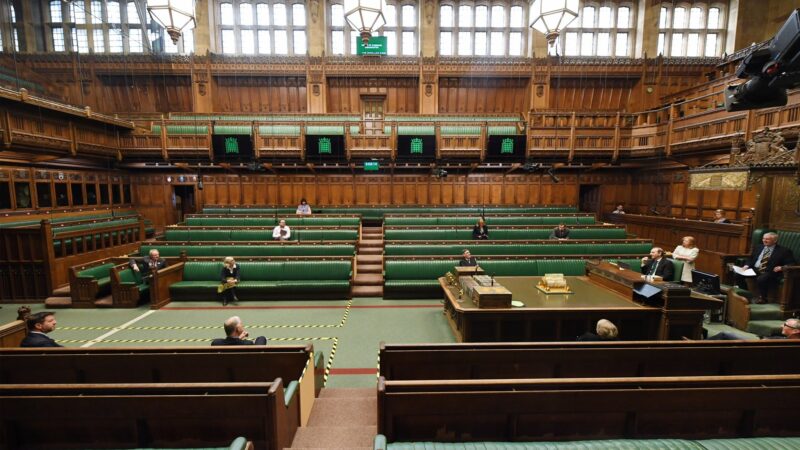
MPs have backed renewing the emergency Covid bill for a further six months after a short debate in the House of Commons this afternoon, voting to extend the powers contained in the legislation by 484 votes to 76.
Closing the debate for the opposition today, Alex Norris reaffirmed that the Labour Party would support the government on the parliamentary vote extending the provisions outlined under the Coronavirus Act until October this year.
“This is a solemn moment. In the week where we mark the anniversary of our first lockdown and of this emergency legislation, we must start by reflecting with sadness at the loss of the lives of 125,000 of our countrymen and women,” he said.
“We will support this,” the shadow health minister told the government. “We don’t support it without reservation. We don’t support it with much pleasure but it is the situation we find ourselves in today.
“Nothing inevitable about it. The virus has been a problem for every country but we have struggled particularly. So we need these so that we can cautiously move forward and make this lockdown our last one.”
21 Labour MPs voted against: Diane Abbott; Apsana Begum; Ben Bradshaw; Richard Burgon; Dawn Butler; Andrew Gwynne; Ian Lavery; Emma Lewell-Buck; Clive Lewis; Rebecca Long-Bailey; John McDonnell; Ian Mearns; Kate Osamor; Kate Osborne; Bell Ribeiro-Addy; John Spellar; Graham Stringer; Zarah Sultana; Jon Trickett; Derek Twigg; Beth Winter.
Bell Ribeiro-Addy said keeping people safe was the “only possible justification” for the powers in the bill, but argued the government has failed in its duty with the highest death toll in Europe and the worst recession since records began.
The Labour MP for Streatham highlighted the violent mishandling of the vigil for Sarah Everard by the police in her constituency, reminding MPs that the authorities cited the emergency Covid legislation as their legal right to do so.
Her colleague Dawn Butler has tabled a bill based on a blueprint from Liberty, which includes provisions for greater police accountability and focuses on clear public health guidance over criminal punishment to ensure Covid compliance.
The Labour MP for Brent Central argued the proposed bill brought forward with the help of the human rights organisation is “based on lessons learned and the science”, describing it as “not just oven-ready” but “baked and ready to eat”.
Ahead of the parliament debate, reports suggested that as many as 60 Conservatives backbenchers were considering rebelling against the government. In the end, 35 Tories voted down the motion to extend the powers this afternoon.
They had reacted angrily to Boris Johnson’s suggestion that pubs goers might need vaccine passports on Wednesday. Downing Street clarified that those that did would have to allow testing for the non-vaccinated to show they do not have Covid.
Conservative MP Steve Baker described the idea as a “ghastly trap” that would create a “two-tier Britain”. Labour’s frontbencher Ed Miliband said his party would look sympathetically at the policy “if this is what the science demands”.
Commenting on the emergency legislation being debated this afternoon, Baker told the Commons: “I will have to vote against the government tonight as the act is extreme, unnecessary and disproportionate.”
Libertarian Tory Desmond Swayne accused the government of tyranny. “Tyranny is a habit, and the motions on the order paper this evening show we haven’t quite kicked the habit,” he argued in parliament this afternoon.
Health Secretary Matt Hancock told MPs at the start of the debate that the Covid legislation should be retired “within one year and preferably within six months”, but could not guarantee that it would be when asked.




More from LabourList
Sadiq Khan signals he will stand for a fourth term as London Mayor
Starmer or Sarwar: Scottish Labour MSPs and MPs split over Keir Starmer’s future
‘Every Lidl helps: What can the Government do to bring down food prices?’